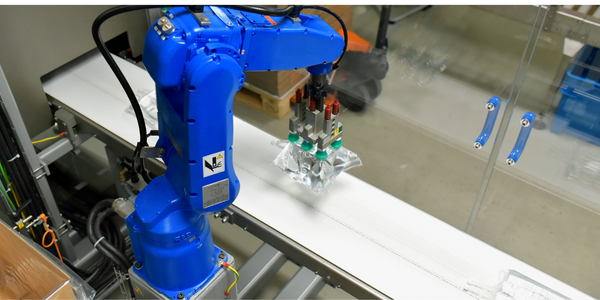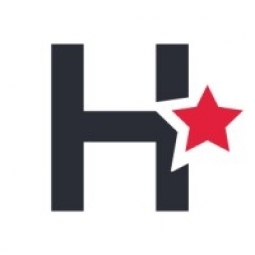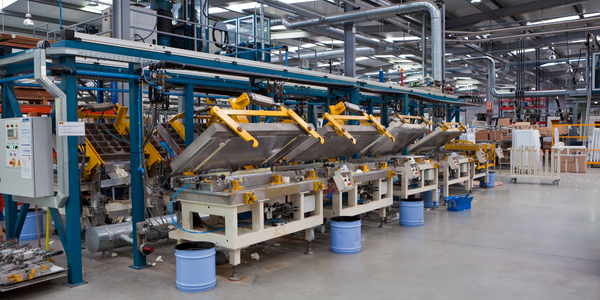Download PDF
Automating Recruitment Process: A Case Study on LanguageLine Solutions
Technology Category
- Application Infrastructure & Middleware - Data Exchange & Integration
- Application Infrastructure & Middleware - Middleware, SDKs & Libraries
Use Cases
- Time Sensitive Networking
Services
- System Integration
The Challenge
LanguageLine Solutions, a leading provider of language access solutions, was facing challenges in their recruitment process. The company wanted to increase the volume of qualified candidates and automate their hiring process to give recruiters more time to focus on quality candidates. The traditional recruitment process was time-consuming and often resulted in recruiters spending a significant amount of time on administrative tasks rather than focusing on identifying and engaging with potential quality candidates. The company was also struggling with an evergreen requisition that they were unable to close due to the inefficiencies in their recruitment process.
About The Customer
LanguageLine Solutions is a leading provider of language access solutions. The company offers a variety of services including interpretation, translation, and localization, as well as testing and training solutions. LanguageLine Solutions serves a diverse range of industries including healthcare, government, and businesses. The company is committed to eliminating language and cultural barriers and strives to provide the highest quality language solutions to its clients. As part of its commitment to quality, LanguageLine Solutions was seeking to improve its recruitment process to attract and engage with more qualified candidates.
The Solution
LanguageLine Solutions partnered with AllyO to automate their recruitment process. After understanding LanguageLine Solutions' recruitment process, AllyO automated several application steps including qualification questions, verification of information, pay expectation, and basic English assessment. Candidates that passed these qualification and assessment questions were automatically scheduled for an interview with the respective hiring manager. Additionally, AllyO worked with the technical team from LanguageLine Solutions to set up an easy integration from Taleo, LanguageLine Solutions’ Applicant Tracking System to AllyO. This integration allowed AllyO to reach out to candidates who had applied through Taleo for additional screening and scheduling of qualified candidates. The automation of these processes resulted in an increase in the volume of qualified candidates for LanguageLine Solutions.
Operational Impact
Quantitative Benefit
Related Case Studies.

Case Study
Centralizing Data for Improved Efficiency: A Case Study on Malvern Panalytical
Malvern Panalytical, a UK-based hi-tech electronics company, was grappling with the challenge of decentralized data storage. The company had a vast amount of unstructured data scattered across various platforms, from hard drives to emails and floppy disks. This made the data searching process extremely cumbersome and inefficient. The company's rapid growth, from 200 to over 1,000 employees in a decade, and expansion across three continents further exacerbated the need for a more structured and centralized data system. As a company involved in electronics manufacturing and software development, it was crucial for Malvern Panalytical to find a platform that could structure all their data, track all modifications of documents in real time, and provide clear visibility of the internal information flow across all its facilities.

Case Study
Managed Hosting Platform
Formula 1® is a sport where every millisecond matters. With changing preferences and the growth of the digital medium, many fans choose to experience the sport through the F1.com website. The website needs to deliver a superior experience to tens of millions of fans across the world consistently. Hence, it is imperative to have a robust platform that can deliver the required performance and scale with growing trac and dynamic fan expectations. Some of the key challenges are: • Every race weekend, Formula1.com attracts up to 7 million fans. Managing this huge surge in website traffic, requires a scalable hosting platform that can simultaneously allow millions of fans to experience the excitement of the sport seamlessly. • Fans across the globe expect an engaging and immersive experience through enriched and enhanced race content across multiple devices. To meet this requirement Formula1.com needs to have a robust platform that is able to deliver real-time updates and information across screens, be it tablets, TVs or smartphones. • A global brand like Formula 1® needs to ensure it delivers a consistent user experience across all platforms across the globe. This consistent delivery of enriched content cannot be compromised through downtime or any other issue at any point. • In an age where threats to global websites are prevalent, Formula 1® needed a platform that was ready to meet any challenge to its website. They needed a solution that delivers consistency, scalability and yet at the same time is continuously monitored, secure and reliable.

Case Study
Flow Robotics: Scaling Up Production and Accelerating Product Development with IoT
Flow Robotics, a Danish manufacturer, developed flowbot™ ONE pipetting robots to alleviate the strain on bioanalysts in life-science laboratories and hospitals across Europe. These robots were designed to automate part of the testing process, speeding up the time it takes to produce results and reducing pressure on staff. However, the company faced challenges in scaling up production and accelerating product development. High workloads and physically challenging conditions have long been an issue for laboratory professionals. Flow Robotics estimates that around half of medical lab technicians carry out the same arm movements for at least a quarter of their working day. The American Society for Clinical Pathology reported that 85% of laboratory professionals feel burnt out; 36% struggle with inadequate staffing; and 32% face a heavy workload and pressure to complete all testing on time.

Case Study
EDF's Transformation: Enhancing Employee Experience through IT Modernization
EDF, a major UK utilities company, was grappling with a highly customized service management system that was largely manual, with limited potential for automation. This made it difficult to predict or prevent system failures and provide a resilient service. The company's IT system for incident handling was purely manual, leaving no room for modernization. EDF wanted to serve its business and residential customers better by improving the response time to rising energy demands. To achieve this, the company needed to provide its employees with the right tools for improved productivity, better collaboration, and an enhanced IT experience at a reduced cost to serve.

Case Study
Mastercard Exceeds CTR Benchmark by 54% with IBM Watson Advertising Accelerator
In the face of global challenges, brands were required to adapt their communication and outreach strategies. Mastercard, a global technology company in the payments industry, was no exception. The company needed to educate consumers about their partnership with ‘Stand Up to Cancer’ and their campaign to donate up to four million dollars to help fund cancer research. The challenge was to effectively reach and engage consumers, and to do so in a way that would resonate with them and encourage them to take action.






